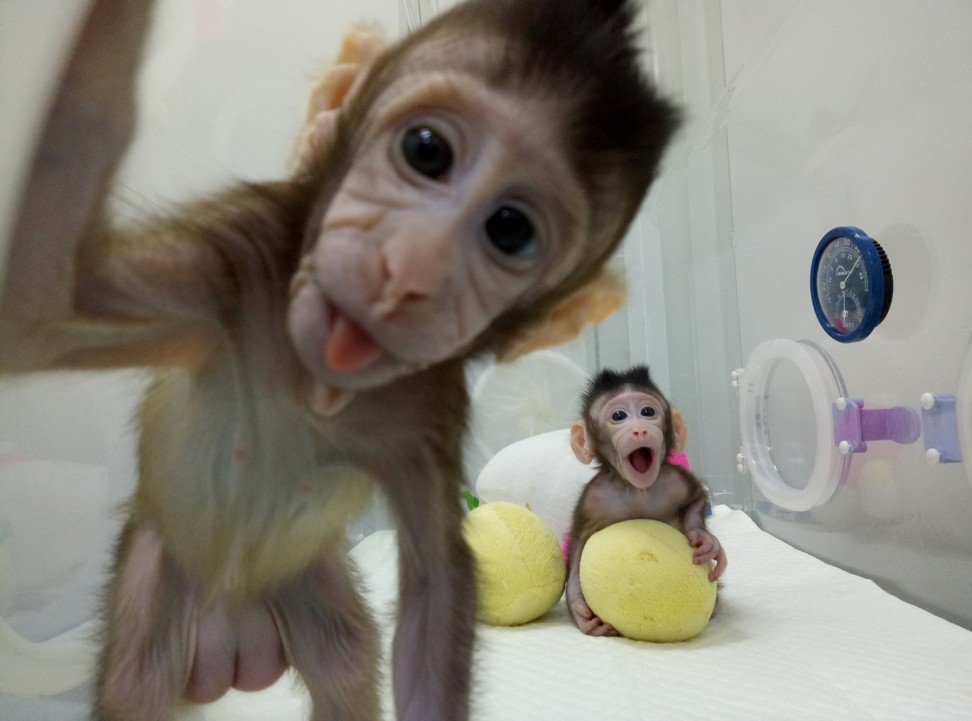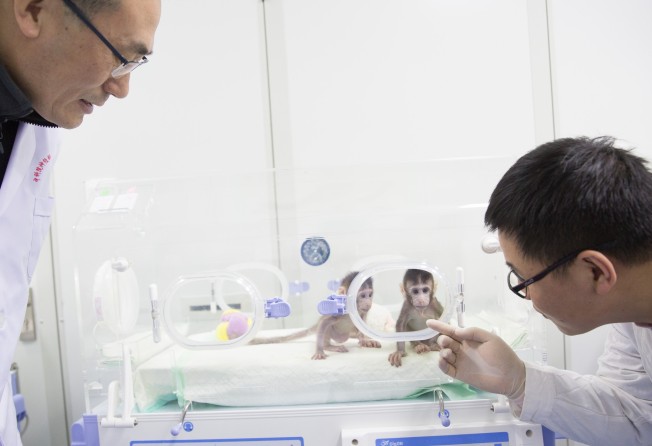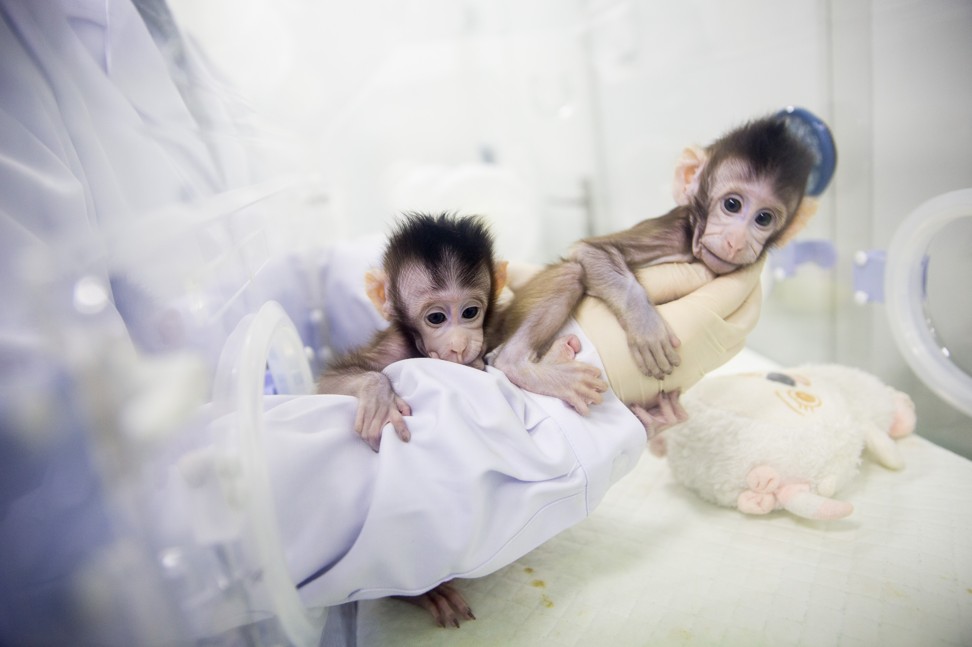
China’s success in cloning monkeys was a victory for hard work, not new tech, team leader says
Chinese-trained researchers made breakthrough with smart use of existing knowledge and a never-say-die attitude, scientist says

Dogged determination and a refusal to throw in the towel were the keys to success for the low-profile team of scientists from China that made headlines around the world recently by successfully cloning a pair of primates, its leader said.
“During the process we experienced many failures, but none of us gave up,” Pu Muming, who headed the team from the Chinese Academy of Sciences Institute of Neuroscience in Shanghai, was quoted as saying in a report published on Monday by People’s Daily – the official mouthpiece of the ruling Communist Party.
While the team did not develop anything new, it succeeded by “making smart use of existing technologies”, the scientist said.
The methods and techniques the Chinese researchers used to bring to life a pair of long-tailed macaques – named Hua Hua and Zhong Zhong – late last year, were fundamentally the same as those used by scientists in Scotland in 1996 to create Dolly the sheep, the first mammal to be cloned from an adult somatic cell.
Pu said he asked Sun Qiang, head of the institute’s non-human primate research facility, to start work on cloning monkeys in 2012, two years after a research team in the United States, headed by Shoukhrat Mitalipov, had managed to clone monkey embryos that survived for 81 days.
“A monkey’s normal pregnancy lasts about 160 days, so the US scientists were halfway through the process,” Pu said.
“We were hopeful [of doing better], as long as we focused on the second half [of the pregnancy].”
Sun recruited his team and headed to a research facility in Suzhou, eastern China’s Jiangsu province, to start work on a project that would take more than five years to come to its world-beating fruition.
“The 17 of us took turns to buy food and cook,” Sun said. “We worked in shifts around the clock, 24/7, taking care of over 1,000 monkeys.”
Liu Zhen, one of Sun’s top scientists who was also working on his doctorate at the time, said he spent week after week honing his ability to remove a nucleus from a healthy egg and replace it with one from another type of cell – a fundamental procedure in cloning known as somatic cell nuclear transfer.
“I practised [using cells from mice] for eight to 10 hours a day for more than three months,” he said.
After he had mastered his technique, he moved on to the monkeys. “There was no major difference. it was harder, but really it was just a case of readjusting and practising.”
He said the demands on all of the scientists were gruelling, but they refused to give up.
“We knew that with each failure we eliminated a wrong road,” he said. “Then we’d adjust our thinking and start again.”
Where Mitalipov had failed, the Chinese scientists were determined to succeed, Pu said. It was their single-mindedness and dedication to perfecting techniques developed by others that got them over the finish line, he said.
“Many breakthroughs in biology don’t necessarily require new technologies,” he said. “Innovation is not just about creating a new technology or theory, it’s also about integrating and optimising existing ones.”
What makes the team’s achievement more notable is the fact that neither Sun nor Liu have had any overseas research experience, the People’s Daily report said.
Locally educated scientists seldom got the recognition they deserved, Pu said, adding that Chinese universities and academies tended to reserve the bulk of their funding for “returnees” from overseas.
Indeed, after completing his doctoral programme in 2016, Liu said he could have applied to work for any number of top laboratories overseas, but chose instead to stay in China.
“I think the conditions for scientific research are improving,” he said. “The government is starting to attach more importance to nurturing talent, and that will inevitably lead to more and more world-leading achievements in China.”
